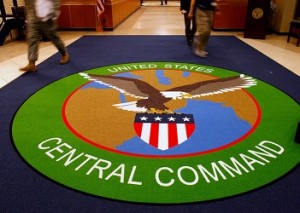US Weighs Ramifications of Targeting ISIS Hackers

By Debbie Gregory.
The killing of two Islamic State in Iraq and Syria (ISIS) hackers is raising new questions about whether the Pentagon is targeting the group’s tech-savvy members.
In August, a U.S. drone strike killed ISIS hacker Junaid Hussain, who was tied to a number of hacking incidents over the past few years. Hussain was believed to be the head of the so-called CyberCaliphate, one of several informal ISIS hacking groups, and was linked to the release of personal information on over 1,300 U.S. military and government employees.
Hussain was also known as a prominent online recruiter, encouraging western sympathizers to carry out “lone-wolf” attacks.
Then, in early December, another U.S. drone strike took out a lesser-known ISIS hacker, Siful Haque Sujan.
Army Col. Steve Warren described Sujan as a Bangladesh-born, British-educated computer systems engineer who worked on hacking efforts and anti-surveillance technology.
“Sujan was an external operations planner and a United Kingdom-educated computer systems engineer. Sujan supported ISIS hacking efforts, anti-surveillance technology and weapons development. Now that he is dead, ISIL has lost a key link between networks.”
Focusing on ISIS hackers could be one way to counteract the extremist group’s online recruitment.
But the U.S. could be on a slippery slope going after these “hackers,” who some describe as more digital pranksters than actual cyber threats, according to Robert Lee, a former cyber officer in the Air Force and co-founder of Dragos Security
“The fact that someone’s involved in hacking or cyber anything should never be the justification for the strike,” Lee said. “But if they’ve made the kill list, applying some sort of prioritization based on that [skill] absolutely could be a very good consideration.”
CyberCaliphate has vowed to take revenge for Hussain’s killing, posting a picture that features several ISIS fighters holding rocket launchers with the words “Revenge,” “Gazwa” and “Abu Hussein” superimposed over the top.
While experts agree that ISIS’s hacking skills remain rudimentary, the group’s digital vandalism has boosted the terrorist organization’s robust online propaganda and recruitment efforts.
Military Connection salutes and proudly serves veterans and service members in the Army, Navy, Air Force, Marines, Coast Guard, Guard and Reserve, and their families.


















